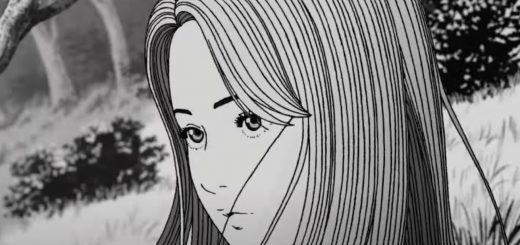The Sound of Silence
Anupama is about a woman finding her real self.
Uma (Sharmila Tagore) and her father Mohan Sharma (Tarun Bose) share a troubled father-daughter relationship. He can’t even bear to look at his daughter in broad daylight because she reminds him of his beloved wife who died giving birth to Uma. He reserves all his paternal feelings for Uma when he comes home drunk at night after she is asleep. That’s when he pours out his love and guilt and berates himself, saying, “Tera kya kasoor hai, main tujhse kyun nafrat karta hoon? (How is it your fault, why do I hate you?)” But Uma never sees this side of her father and grows up as a painfully shy, introvert and under-confident girl. Life changes when she meets Ashok (Dharmendra), a poet and writer, who falls in love with her silences, gives her the confidence to believe in herself and urges her to break free from the shackles that bind her life.
Hrishikesh Mukherjee directs this sensitive portrait of a woman who has to take that one step to claim life and how she finally finds herself. Anupama is a quiet film. There are long stretches of silence, and there are hardly any dialogues — except when Shashikala is on screen.
Everything that happens around Uma happens silently. She sings softly, conversations between her and Ashok are minimal, as is the build-up of their love story. He tells her, “Mujhe lagta nahin ki aapne kabhi khud ko hanste hue dekha hai… chupke se sheeshe ke saamne jaaiye aur dekhiye ki yeh hansi kitni khoobsurat hai… kitni suhaani (I don’t think you have ever seen yourself laughing… tiptoe to a mirror and see for yourself how beautiful your smile is).” He never hurries her, even the declaration of love is under-stated: he tells her on the phone, “Aap humein apna samjhen… humare ghar ko apna samjhen… aap ka hum par poora adhikar hai (Please consider me yours, my house yours, you have full rights over me).”
In an interview, Mukherjee said that Anupama was based on his cousin’s life. “My aunt died during childbirth, my uncle became an alcoholic, and he couldn’t stand his daughter. I’d seen this with my own eyes. For Anupama’s relationship with the poet who rescues her, I used my imagination. Though they are in love, they never touch each other,” he said. In the same interview, Mukherjee confessed that his decision of casting Tagore as the leading lady was frowned upon. “There were howls of protests when I signed Rinku (Tagore). She was busy doing An Evening in Paris in a bikini! I was told to take Nutan instead. I said, ‘Look, Rinku has the expressive eyes of my Anupama.’ I had to instruct her very closely. She didn’t know what she was doing. When she saw the rush print, Rinku gave me a kiss,” said Mukherjee.
Tagore, too, has fond memories of shooting Anupama, especially the lyrical Kuch dil ne kaha in Mahabaleshwar — for which she and Dharmendra had to report at 5 am. Her memories are also to do with her famous bouffant. In an earlier interview, she told me, “I remember I came on the sets in full make-up and a bouffant. Hrishida didn’t like the bouffant and he sat me down and said, ‘Please Rinku, you’re supposed to be a motherless child, for God’s sake.’ But I insisted on the bouffant and he allowed me to do it. Now when I see it, I do cringe and think: why didn’t I listen to him?” she said.
Like in all Hrishida films, life’s philosophies are sprinkled in everyday conversations in this film. In a delightful scene, David admonishes Deven Verma’s character for expressing that he had fallen in love. “Mohabbat mein log upar uthte hain, girte nahin. Koi kehta hai ki main ladki pe marr gaya, yeh kehna chahiye ki main ladki pe zinda ho gaya (People should rise in love. Some say I died because of a girl, but one should say I became alive because of her).” Nobody is a bad person in Hrishida’s world. Even the father who could never show his love for his daughter wants the best for her. When Uma finally musters up her courage to tell him that she’s leaving home, he gives her his aashirwad silently. Without telling her, he reaches the station when she’s leaving with Ashok and hides behind a pillar, rejoicing at her freedom. Incidentally, Bose was not the first choice for the father’s role. Hrishida had first offered it to Ashok Kumar and then Abhi Bhattacharya, but both of them turned it down.
Anupama’s music is as much a reason to remember the film. Hemant Kumar’s compositions and Kaifi Azmi’s lyrics make you want to live in the songs. Lata Mangeshkar is at her best in Kuch dil ne kaha, especially the way she whispers Kuch bhi nahin. Then there is Hemantda’s Ya dil ki suno, a war cry of an angsty poet against a world full of hypocrisy. Kaifi saab’s words Kya dard kisi ka lega koi, itna toh kisi mein dard nahin rips the heart. They really did know how to say it then.
Film: Anupama
Year: 1966
Director: Hrishikesh Mukherjee
Cast: Sharmila Tagore, Dharmendra, Tarun Bose, Deven Verma, Shashikala, David
Music: Hemant Kumar
DVD: Shemaroo
Play It Again
Dheere dheere machal: Lata Mangeshkar
Kuch dil ne kaha: Lata Mangeshkar
Bheegi bheegi faza: Asha Bhosle
Kyun mujhe itni khushi: Asha Bhosle
Ya dil ki suno: Hemant Kumar
Source:: Indian Express






